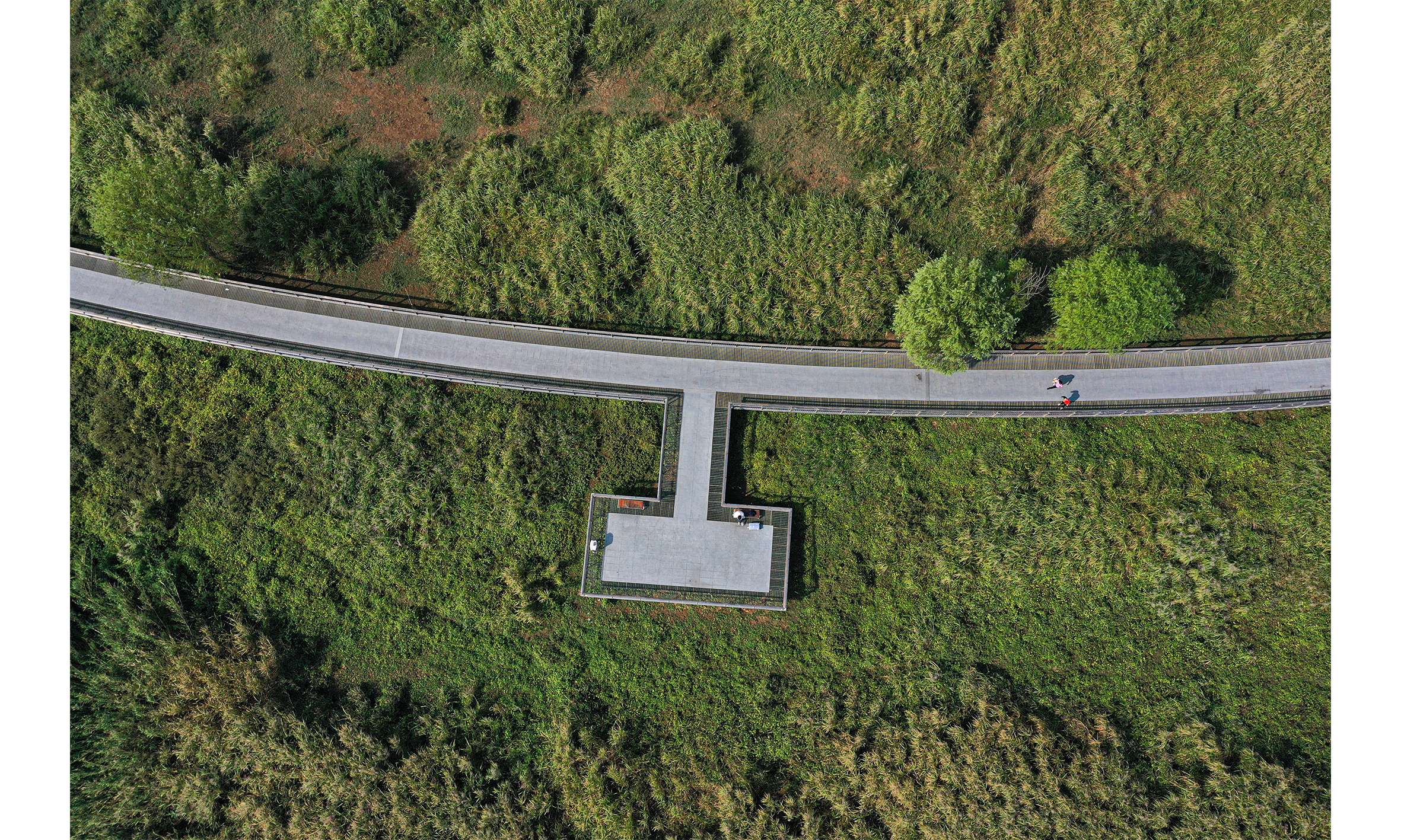
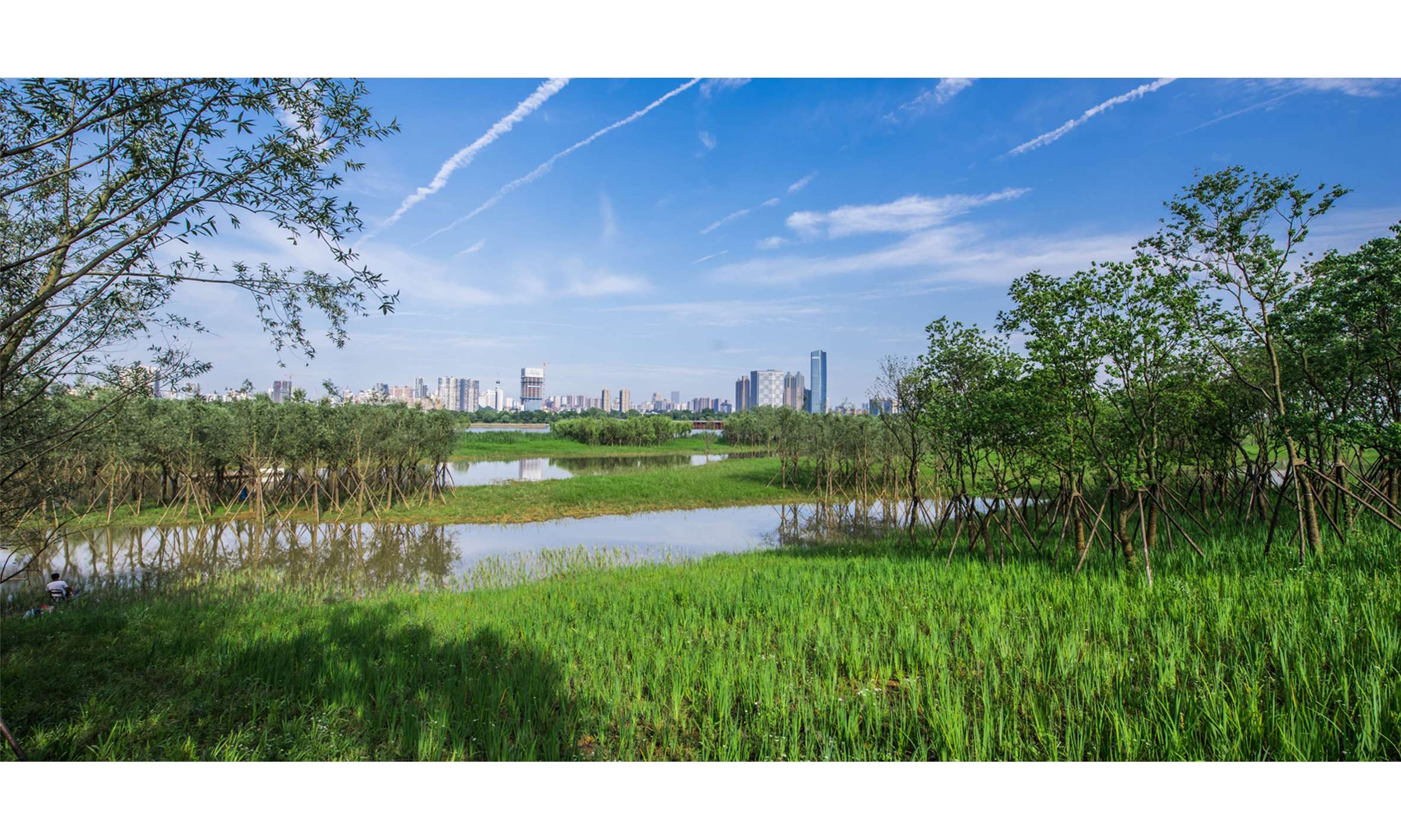
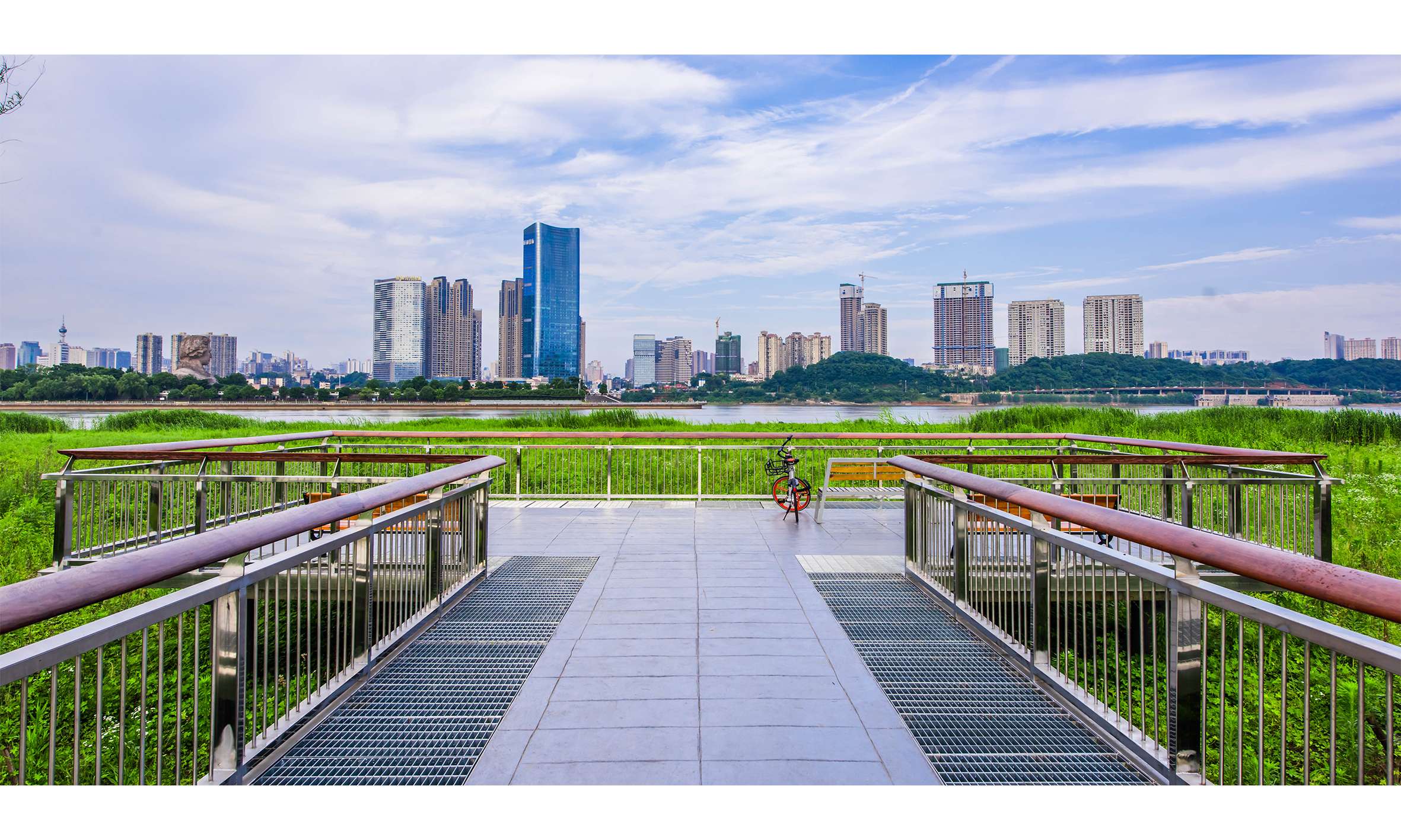
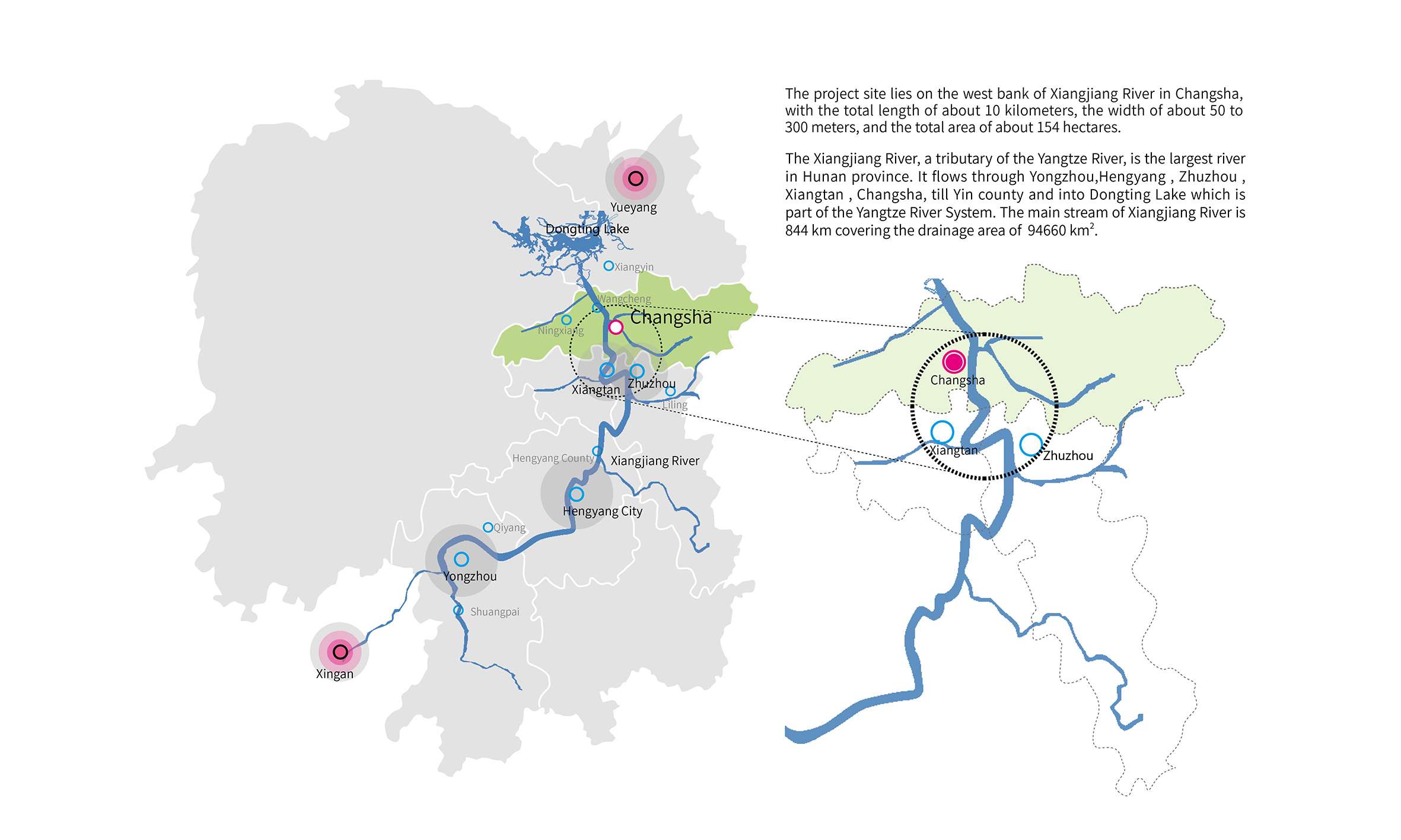
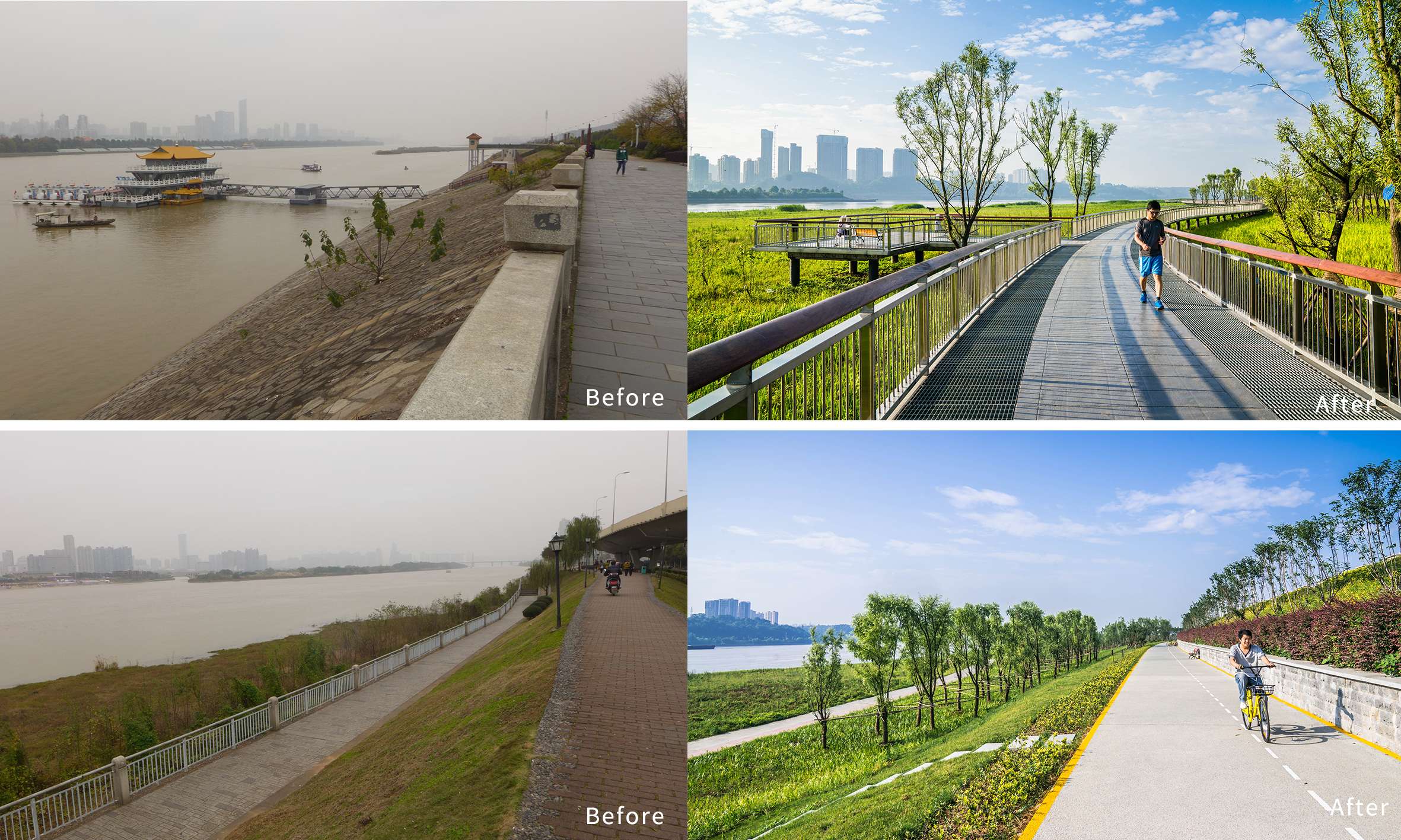
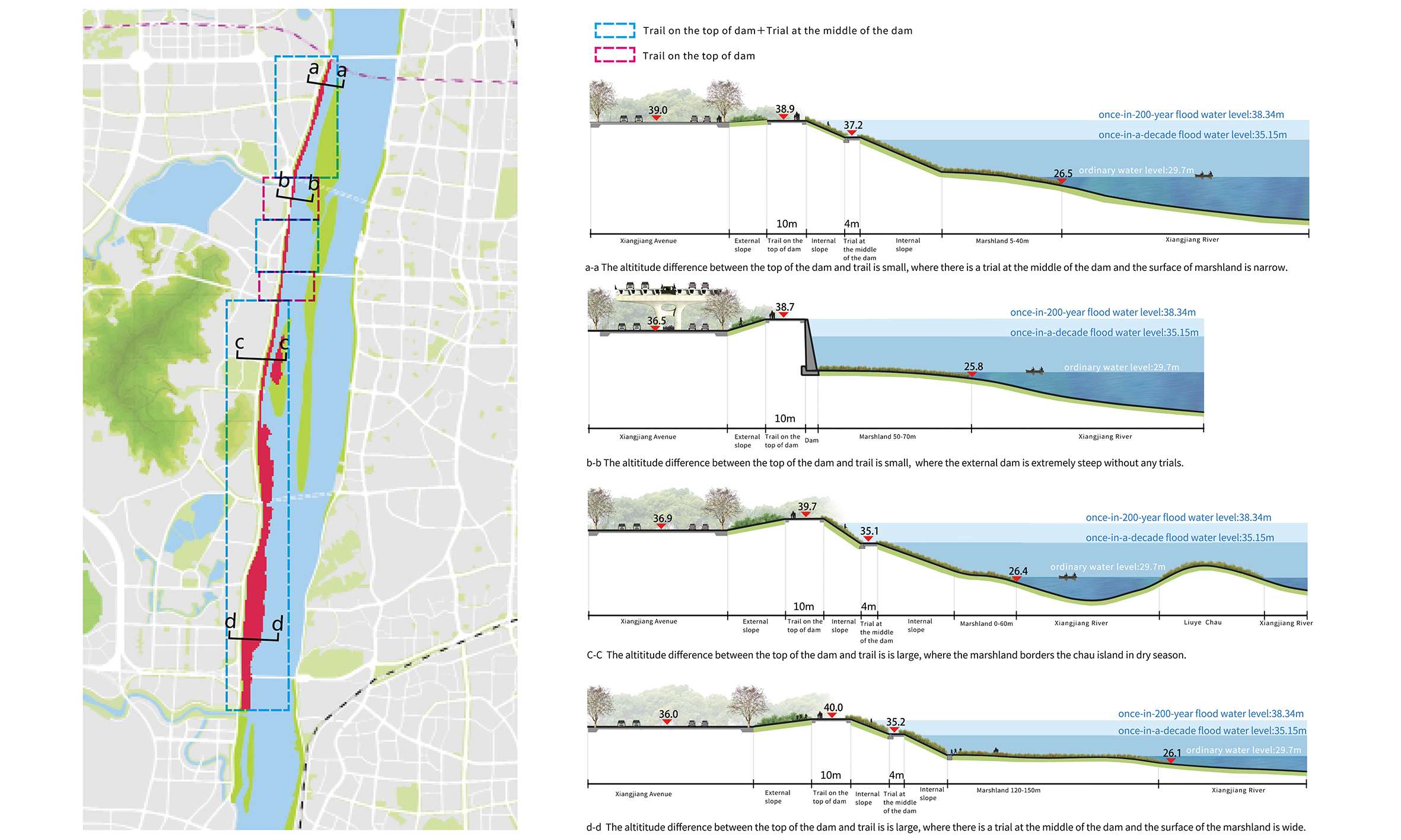
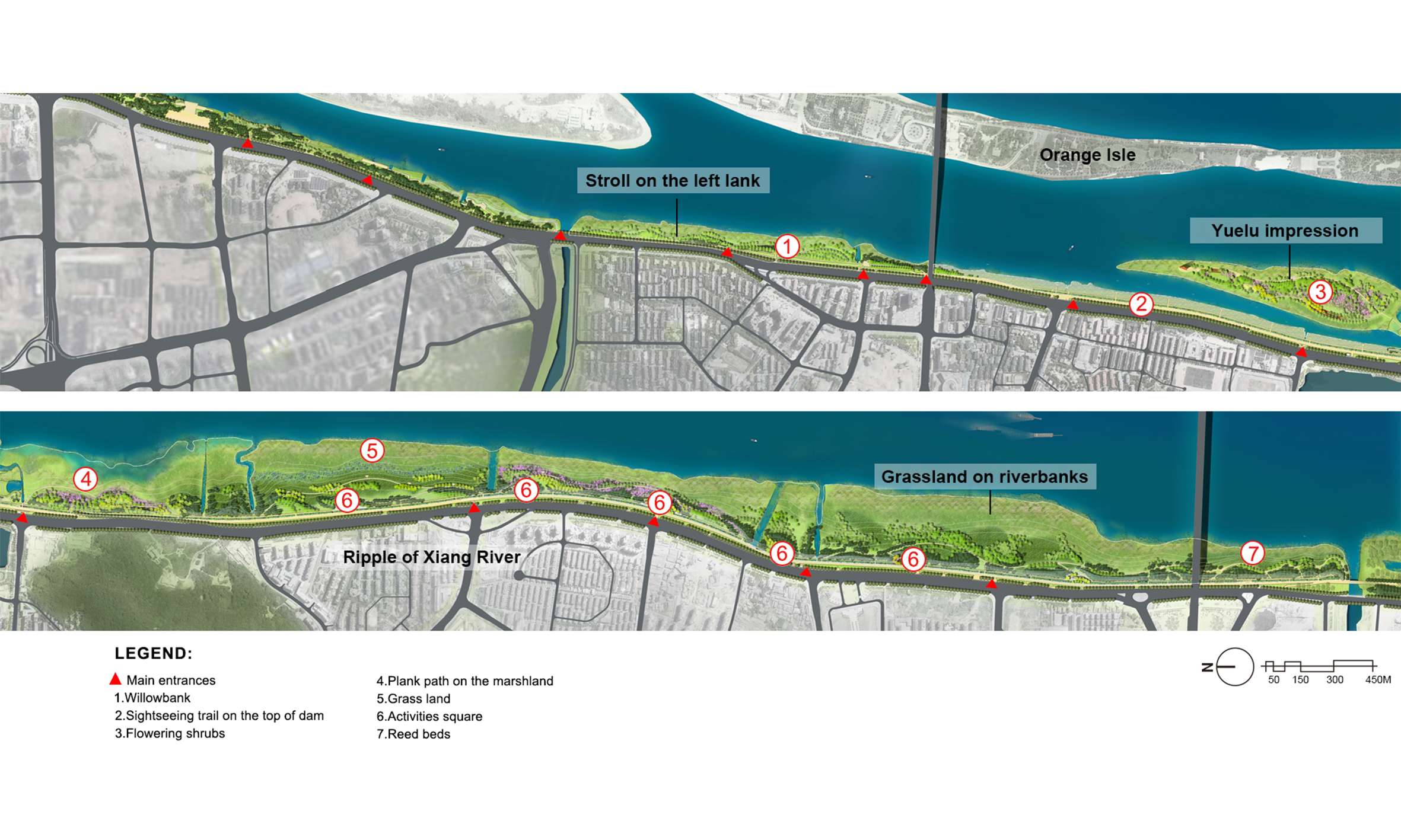
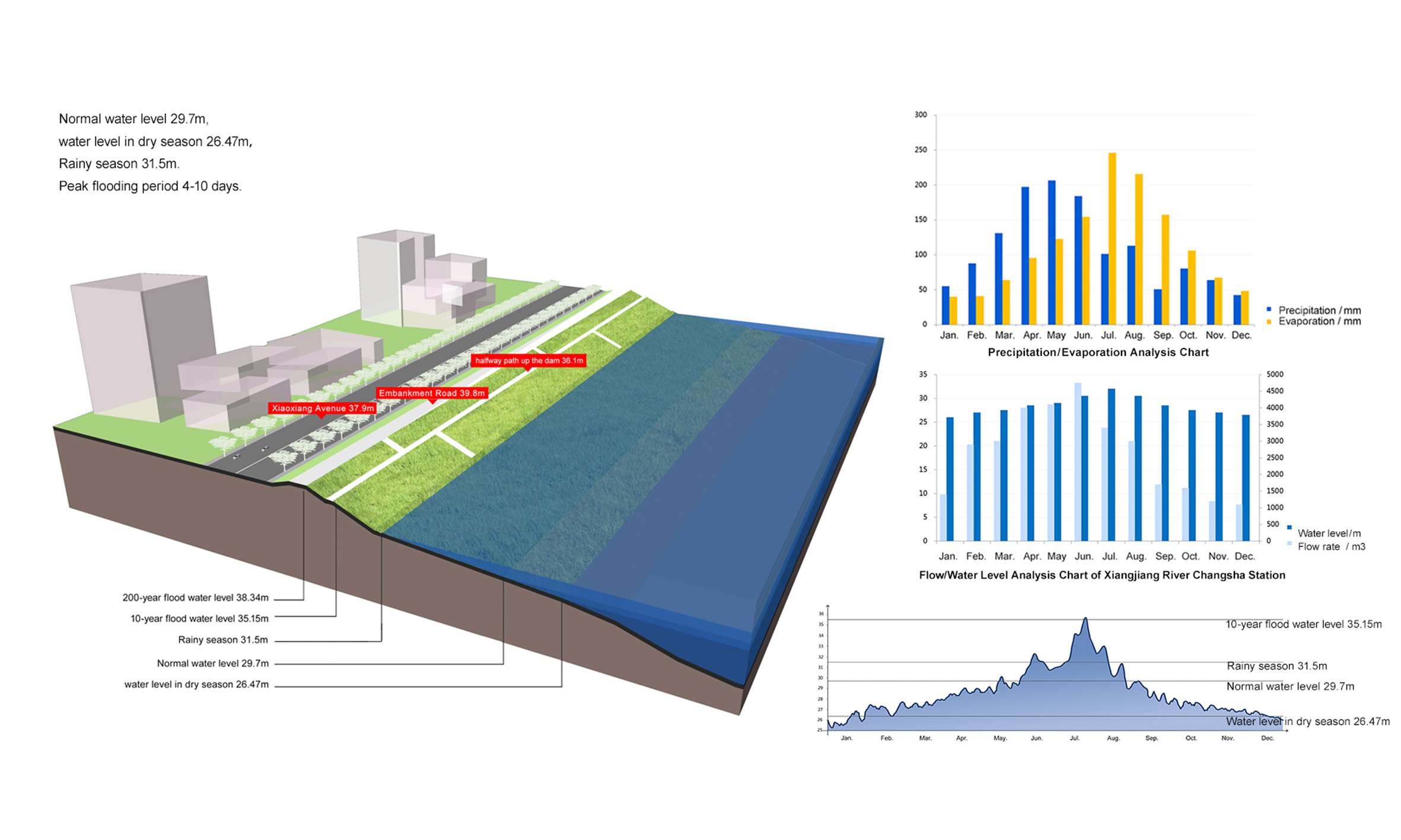
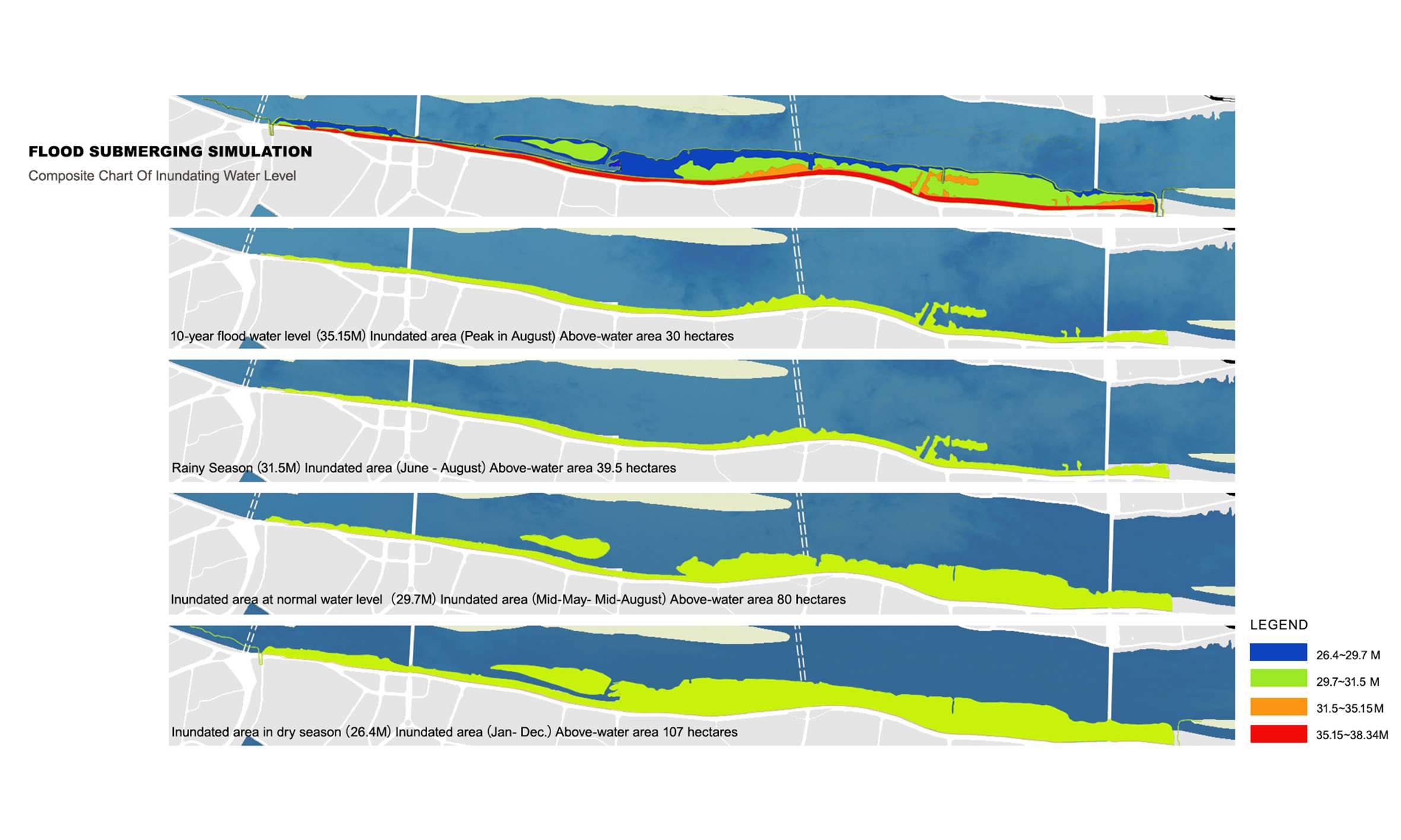

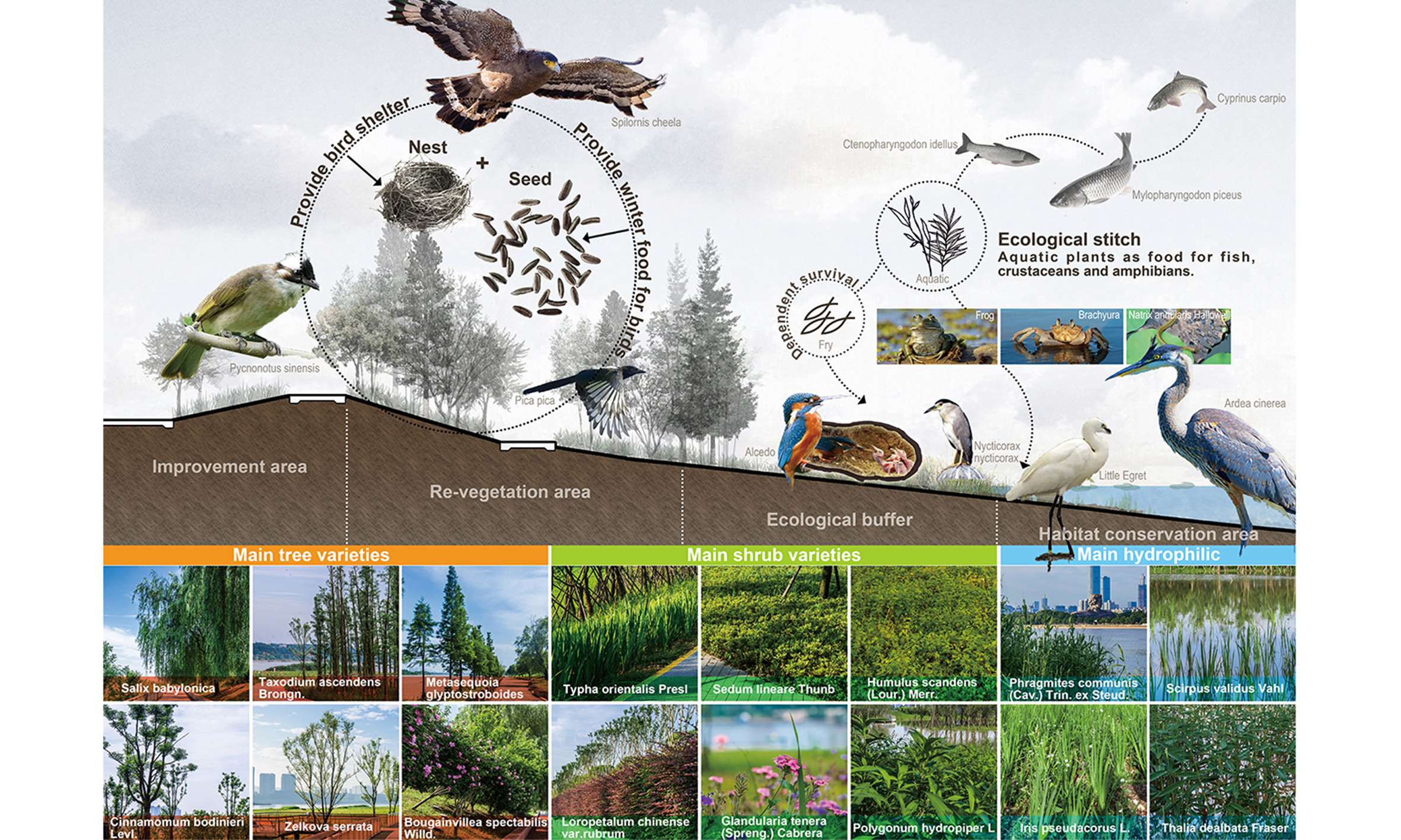
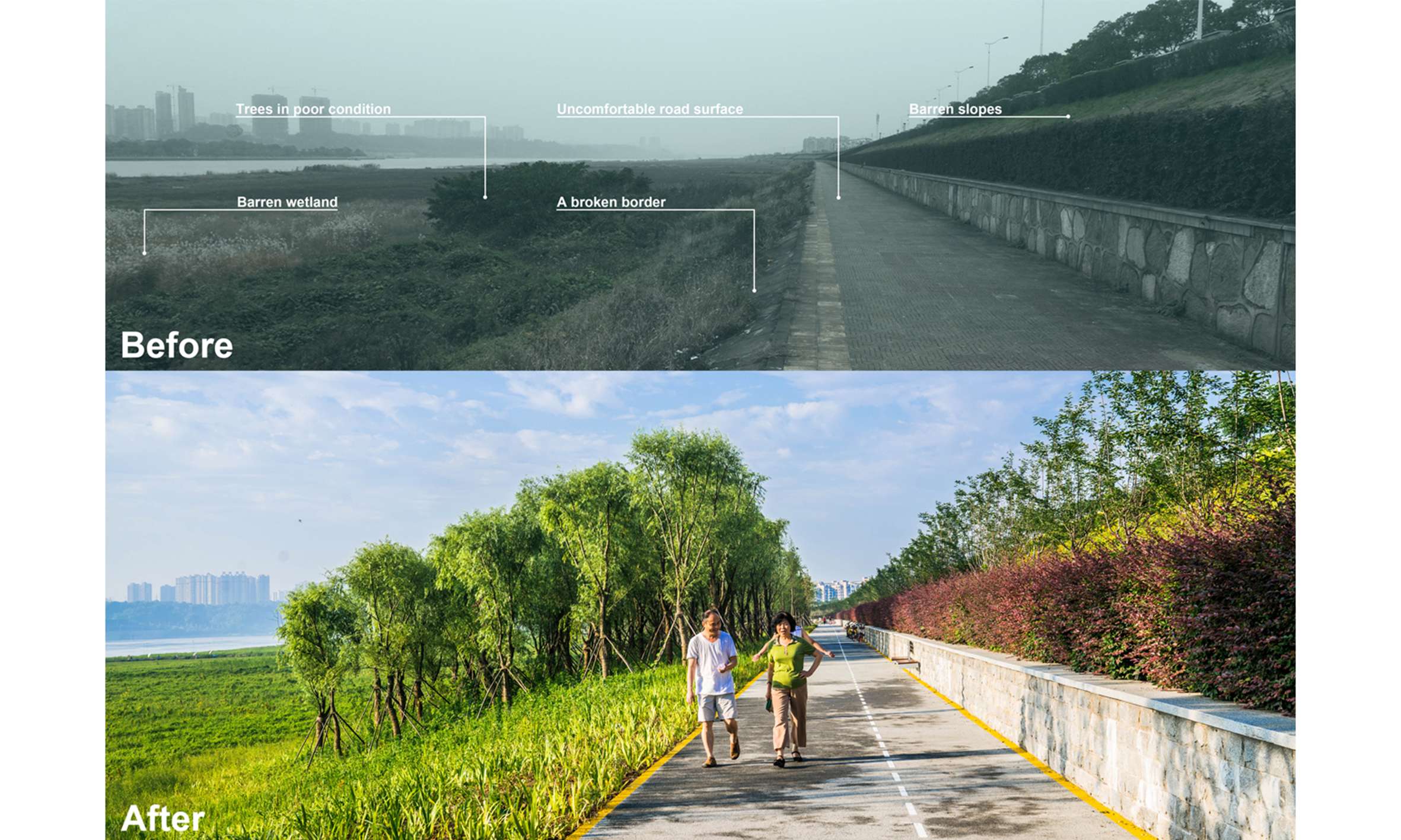
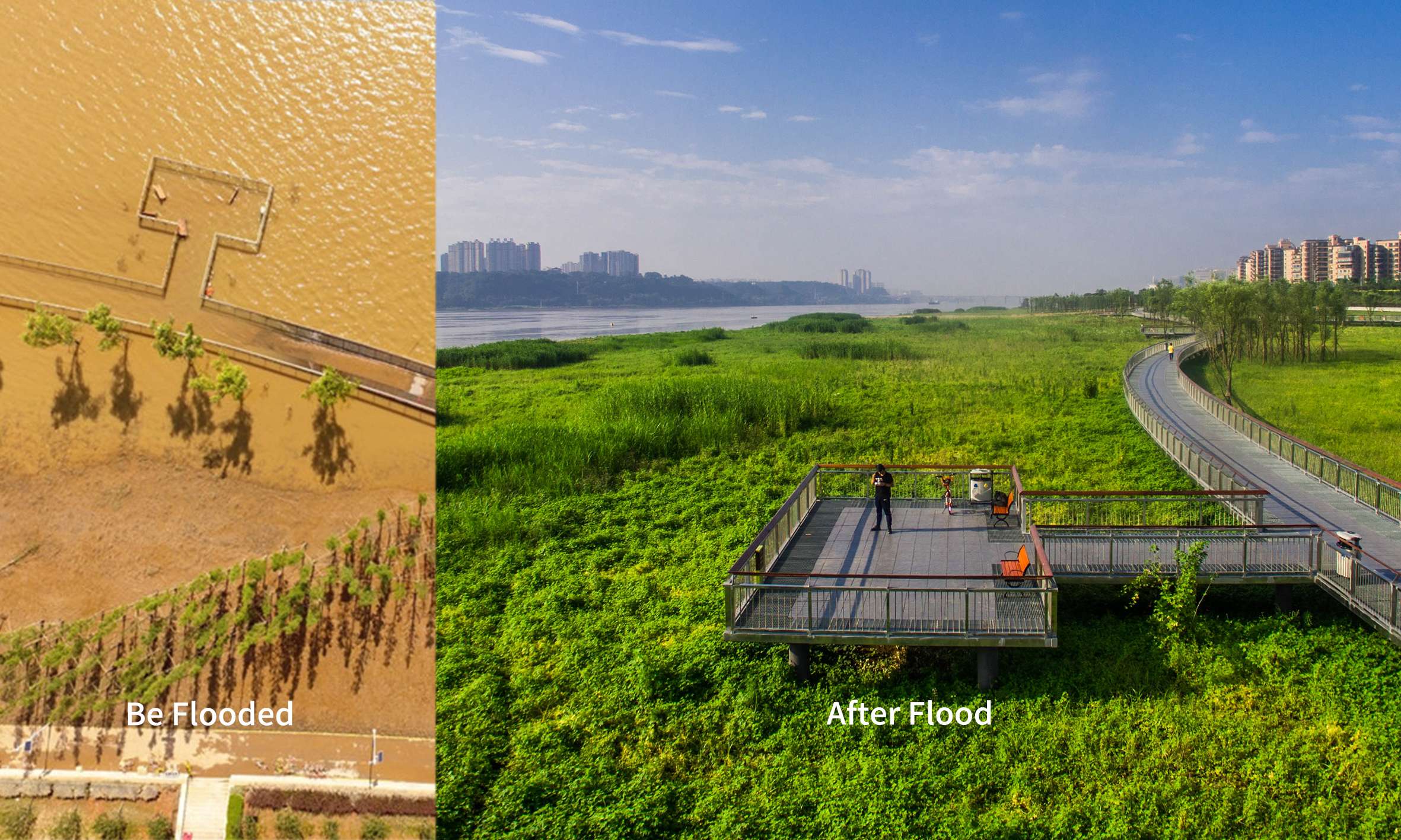
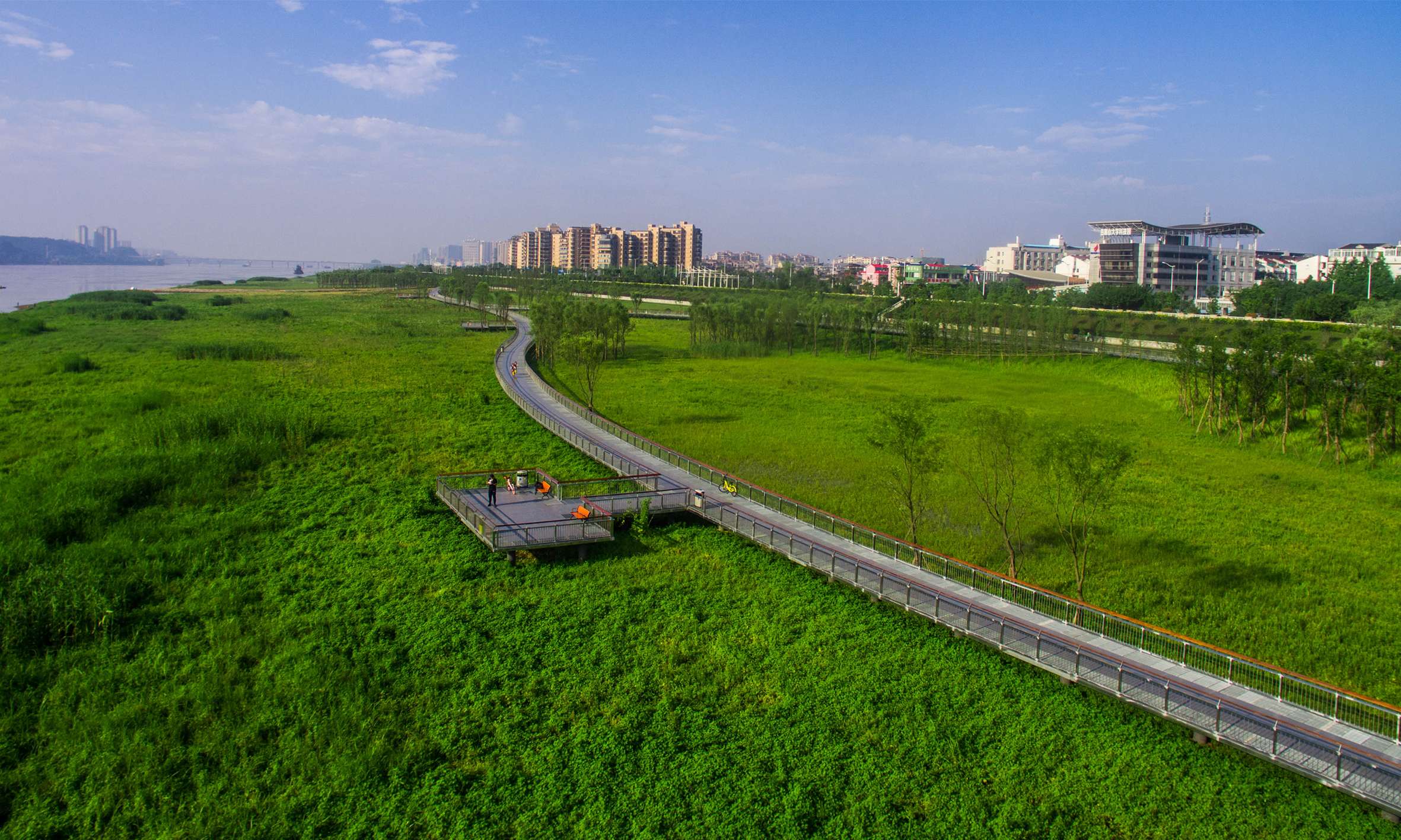
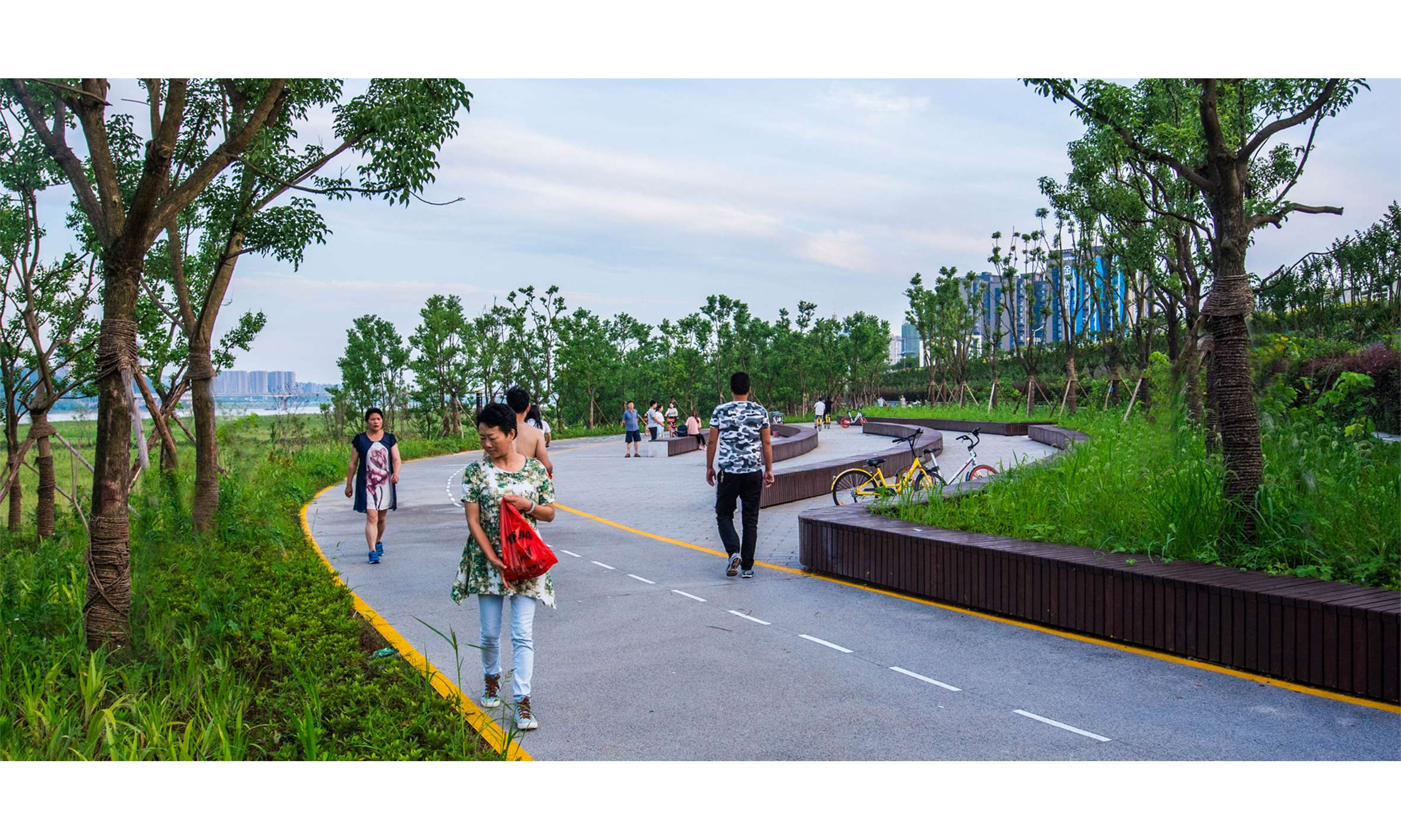

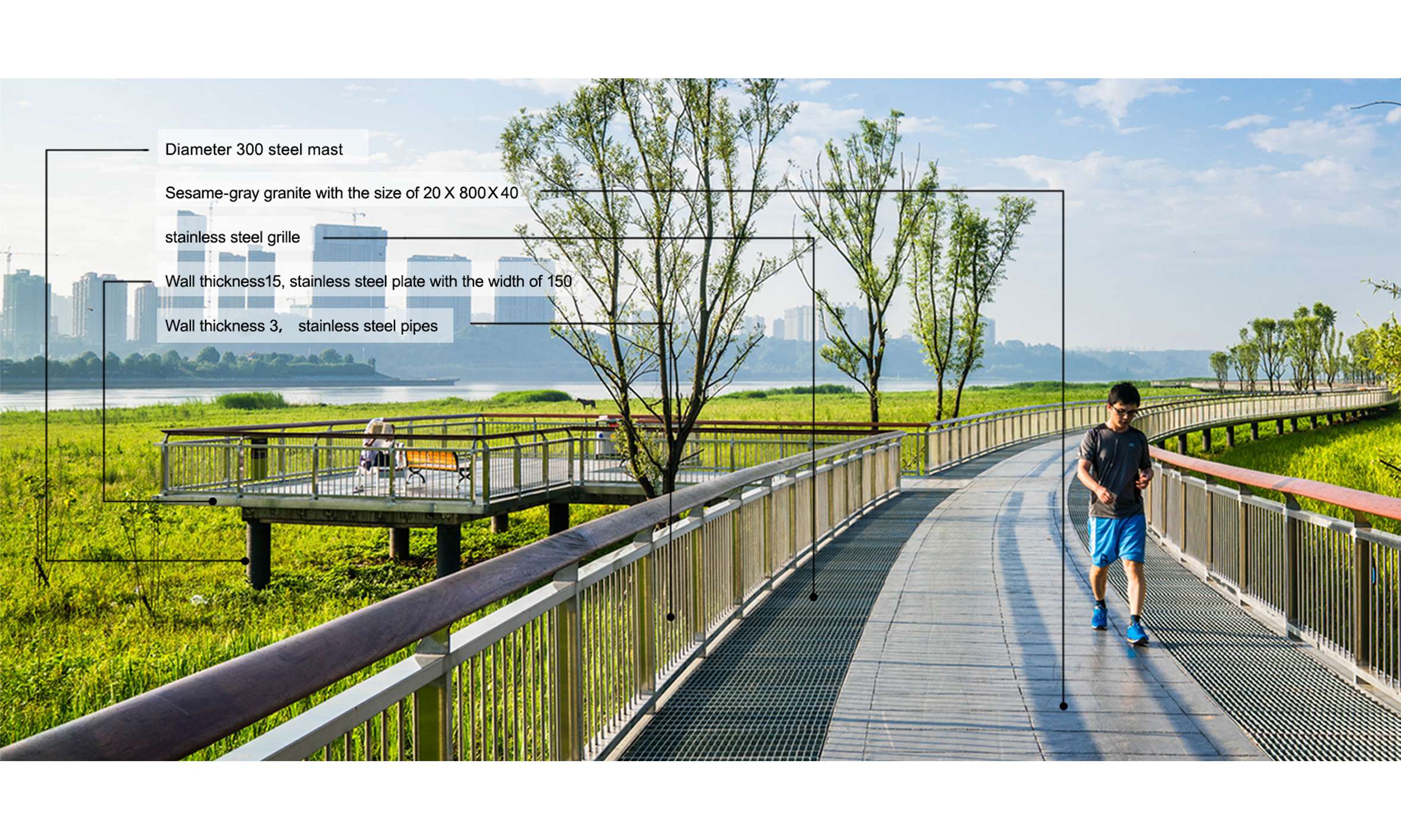
Marshland Park along Xiangjiang River, Changsha
Obedience, A Way of Protection
Obedience, A Way of Protection — Marshland Park along Xiangjiang River, Changsha
Objective of the proposal
The project site lies on the west bank of Xiangjiang River in Changsha, with the total length of about 10 kilometers, the width of about 50 to 300 meters, and the total area of about 154 hectares. It is facing to the Orange Isle Scenic Area on its east, to the Yuelu Mountain Scenic Area in the distance on the west, and surrounded by colleges and universities. The site occupies an excellent location for further development.
However, as a tidal flat, the existed site did not demonstrate its ecological vibrancy of wetlands, nor provide an ideal public space for citizens to hold recreational activities during long local dry season after the rainstorm. Its ecological functions and urban functions need to be developed. The surrounding ecological system was seriously damaged by rough and rude artificial intervention, of which the space was separated from the adjacent urban land. As for the urban landscape structure, the most important landscape sight corridor in Changsha is formed from the old urban districts, Orange Isle to Yuelu Mountain. Along the sight corridor, the marshland here is the only landscape gap, on which the dilapidated appearance has seriously interrupted the cityscape - the marshland needs to be renovated and revitalized.
Description of the project
Greatest Characteristic of the Site
There is great variation of the water level around the project site. The marshland is totally exposed onto the water surface and even drought sometimes during the period of low water stage from annual September to May of the following year. On the contrary, the site suffers from river erosions inordinately during the flood season in annual June, July and August.
Hence, it is a vital challenge in this project to well adapt such unstable site condition to meet the needs of recreational city life with the low impact on the river.
Multi-dimensional Designs for Such a Changeable Site
In accordance with such a changeable site, the design team decided to make the greatest characteristic above as a recurring landscape by multi-dimensional designs. Plants with strong resistance and related artificial devices are selected to reduce the ecological impact on the site by unstable water level in all year around. Various plant species are planted in different areas divided by waterlines, and series public spaces are also designed within multi-dimension by the lines, to minimize the disturbance to citizen’s daily recreational activities. Natural ecology is emphasized below the water level in the flood season, and public space construction is emphasized above the level.
Achieving plant diversity is beneficial for strengthening the stability of ecosystems. Local drought-tolerant plants are firstly selected by the design team, and weeping willow (Salix babylonica), Chinese wingnut (Pterocarya stenoptera), bald cypress (Taxodium distichum), pond cypress (Taxodium ascendens), Chinese tallow (Triadica sebifera) and poplar (Populus) are selected as the main trees to plant above the normal water level to create a scenic forest belt by successive on-site inspections on similar islands such as Xingma Island, Moon Island and Baxi Island along Xiangjiang River. Groundcover vegetation is planted into three different levels, considering the rainy season, couch grass is planted below the normal water level under the premise of keeping the existing wild plants, to form an orderly large thatched grass landscape; drought-resistant plants, such as miscanthus, pampas grass (Cortaderia selloana), Chinese fountaingrass (Pennisetum alopecuroides), flabelliformis, Canna generalis, Water-garden Iris, purple loosestrife (Lythrum salicaria), roof iris (Iris tectorum) and orange day-lily (Hemerocallis fulva), are planted in the transitional zone in between with the changing water level; above the 20-year flood water level, Verbena tenera, garden cosmos(Cosmos bipinnatus) and large-flowered tickseed (Coreopsis grandiflora) are planted on the embankment as a rich multi-dimensional planting landscape with high-density flowering scenery.
Artificial devices are designed to strengthen the site’s self-reinforcement and minimize its interference. Below the water level in the flood season, the walking path on the marshland is built by water-resistant materials such as concrete and steel mesh to resist the impact of river water; the elevated grid planks and viewing platforms are also built on the site, providing sufficient space for plant growth to form a natural flood channel, and to further shorten the time of the site suffering immersed.
Three trails with different elevations are built to meet the citizen’s activities and viewing requirements on different water levels. They are sightseeing trail on the top of dam, the multi-functional trial at the middle of the dam, and the promenade along the marshland. The entrance and exit of the park are built at the top of the dam, with a spacing of 700-1000 meters. The main entrance is connected with the pedestrian crossing facilities of Xiaoxiang Avenue to improve the accessibility. Above the flood water level, the road system at the middle of the dam is reconstructed as a double-functional passage both for bicycle riders and pedestrians. Additional leisure facilities are also set on the passage, such as seats and pergolas. Five activity spaces are built by partially reconstruction with the exited topographies, to maximize the value of this urban open space even during the flood season. The plank path on the beach is built above the regular water level line. There are only several viewing platforms set on the path to guide tourists into the non-ecologically sensitive area of the beach, encouraging people to get in touch within the area without lingering so as to minimize the interference to the ecology.
Evaluation of the finished work
The completion of this project represents the completion of Xiangjiang River Scenic Belt in Changsha City Section with more than 40 kilometers. Relevant monitoring data indicates there are at least 100,000 people visiting this Section per day. It is developed as the largest urban public green space in Changsha.In July 2017, Xiangjiang River suffered the most serious flood in the past hundred years. The marshland park was almost completely inundated. However, the park recovered itself soon after the flood, demonstrating strong resistance of the resilient ecosystem to disasters.
This project successfully changed the “wasteland” into an “oasis”, eliminating the destruction to the ecological environment by nearby residents and providing visitors with a healthier approach to the nature. People like walking, cycling, and leisurely sightseeing in the park. The plank path on the marshland acts as a friendly bridge between people and nature, attracting visitors to walk in the well-planting river beach. Visitors always enjoy the scenery on the viewing platform.
The marshland park is also an ideal bridge between visitors of Yuelu Mountain and Orange Island by its in-between location. Visitors in the park become potential consumers of two tourist attractions, partially bringing economic benefits to the city.
The project also plays an important role in cultural communication. Bamboo slips, as one of the significant historical cultural relics in Changsha, is brought to be a key design element to create a traditional ancient image of Changsha to visitors in the park by modern design techniques. The public spaces in the park are well connected by the hydrological form of Xiangjiang River with landscape texture integrated. An ideal interaction is achieved between the park and its surrounding dynamic riverscape. The profound Lushan Culture occupies an important position in Hunan. The design team integrates it into the landscape in the form of graphics and texts, combining it with the cultural landscape structures to complement each other by the most direct way for cultural transmission. The visitors will slow down here away from the fast-paced city to enjoy the special local culture and spirit.
